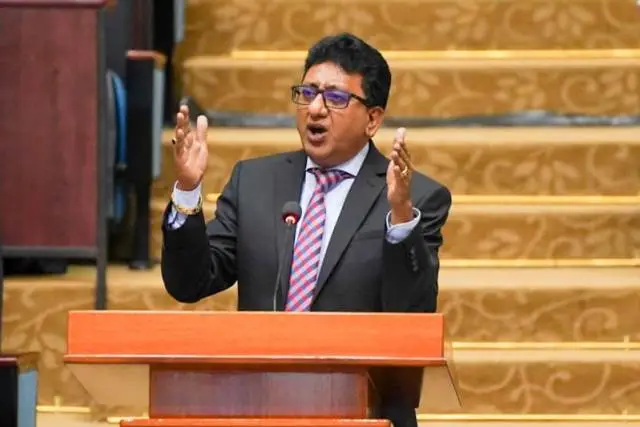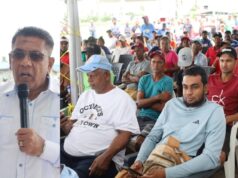Over 20 years ago, Guyana along with several of its Caribbean neighbors signed a treaty on security assistance among CARICOM states. According to Attorney General and Minister of Legal Affairs, there was evidently, no great haste in ratifying and enforcing it. That state of affairs has now changed as regional leaders have come to recognize that crime is on the rise and so too are threats to the Caribbean’s longstanding credential as a zone of peace.
Nandlall who led the debate on the bill last night noted that it is being laid in parliaments all across the Caribbean. He said it introduces into all the jurisdictions of CARICOM, the regional security system as part of the local law enforcement agencies. It can therefore be seen as a CARICOM model bill that enjoyed the support of the CARICOM Secretariat and its Legal Affairs Committee.
Citing the historical significance of the RSS, Nandlall noted that it dates back to October 1982 when four members of the Organization of Eastern Caribbean States, namely Antigua and Barbuda, Dominica, St. Lucia and St. Vincent and the Grenadines, signed a Memorandum of Understanding with Barbados to provide for mutual assistance on request. The Memorandum made provisions for a fast-moving, non-bureaucratic organization which could develop and coordinate joint efforts among its member states. Nandlall said this was first demonstrated in October 1983, when together with the military forces of the United States of America and Jamaica, the RSS deployed troops to Grenada to restore democracy after a period of political upheaval.
Nandlall said this intervention would have been impossible without the mutual cooperation and understanding which is characteristic of the regional security system response mechanism found in the Memorandum of Understanding and later in the treaty establishing the RSS.
In light of the new and emerging challenges, Nandlall said the RSS member states’ direct support to the RSS has therefore evolved to include supporting national security architectures with improved diagnostic capabilities to national crime and security problems. It also entails improving legal, regulatory, investigative and prosecutorial procedures in member states to combat financial crimes involving fiat or virtual currencies.
Further to this, Nandlall noted that the regional security system is a hybrid organization, in that, its security forces comprise both military and police personnel who remain under the command of their respective heads. In light of the RSS’s success and its quite unique position as the sole regional security organization, Nandlall said the RSS was formally assigned this responsibility on behalf of CARICOM under the Treaty on Security Assistance.
Overall, the Attorney General expressed confidence that the bill will now pave the way for Guyana’s security forces to receive timely and effective support when the need arises.
The current members of the RSS are Antigua and Barbuda, Barbados, Dominica, Grenada, Guyana, St. Kitts and Nevis, St. Lucia, St. Vincent and St. Vincent and the Venedines. Guyana recently held the main leadership role of the RSS Council from 2023 to 2024 under Minister of Home Affairs, Robeson Benn













